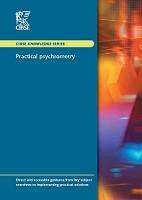To provide the best experiences, we use technologies like cookies to store and/or access device information. Consenting to these technologies will allow us to process data such as browsing behaviour or unique IDs on this site. Not consenting or withdrawing consent, may adversely affect certain features and functions.
The technical storage or access is strictly necessary for the legitimate purpose of enabling the use of a specific service explicitly requested by the subscriber or user, or for the sole purpose of carrying out the transmission of a communication over an electronic communications network.
The technical storage or access is necessary for the legitimate purpose of storing preferences that are not requested by the subscriber or user.
The technical storage or access that is used exclusively for statistical purposes.
The technical storage or access that is used exclusively for anonymous statistical purposes. Without a subpoena, voluntary compliance on the part of your Internet Service Provider, or additional records from a third party, information stored or retrieved for this purpose alone cannot usually be used to identify you.
The technical storage or access is required to create user profiles to send advertising, or to track the user on a website or across several websites for similar marketing purposes.
 Last year’s unrest in the Chinese factory that is a principal manufacturer of the iPhone5 shone a light into one of the usually dark corners of modern life. Namely that beneath the sleek facades of the products we buy lies the story of their production, transportation, marketing and eventual demise. Look further back than the factory and it usually starts with a hole in the ground; and, in the case of the iPhone, an open-cast rare earth mine in the Nevada desert which produces the raw materials for the cutting edge technologies that make our lives tick.
Last year’s unrest in the Chinese factory that is a principal manufacturer of the iPhone5 shone a light into one of the usually dark corners of modern life. Namely that beneath the sleek facades of the products we buy lies the story of their production, transportation, marketing and eventual demise. Look further back than the factory and it usually starts with a hole in the ground; and, in the case of the iPhone, an open-cast rare earth mine in the Nevada desert which produces the raw materials for the cutting edge technologies that make our lives tick. 






















March 8, 2013
Video: The greening of the workplace should begin with individual behaviour
by Mark Eltringham • Comment, Environment, Facilities management, Lighting, Workplace design
[embedplusvideo height=”160″ width=”225″ standard=”https://www.youtube.com/v/audakxABYUc?fs=1″ vars=”ytid=audakxABYUc&width=290&height=191&start=&stop=&rs=w&hd=0&autoplay=0&react=0&chapters=&notes=” id=”ep9359″ /]
There is an understandable temptation when we consider the ways in which we might green our buildings and organisations that we focus primarily on designed and engineered solutions. But as this blog on Greenbiz points out, we can achieve a great deal by looking at the behaviour of individuals. It is a point made in an entertaining way by my favourite TED Talk of all time, delivered by Rory Sutherland (above). It’s fair to say that if he were to consider ways in which to change the behaviour of individuals, the printed note above the photocopier and the label on the light switch wouldn’t display enough innovative thought for him.